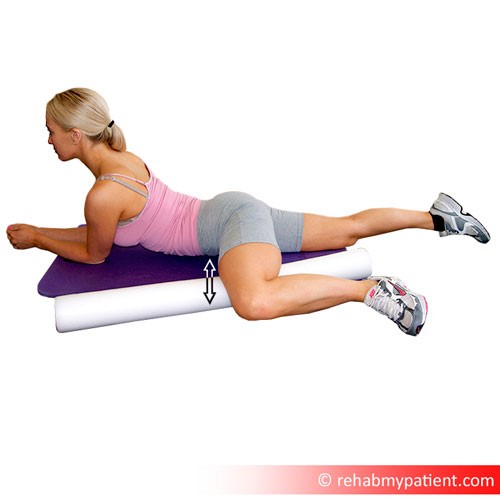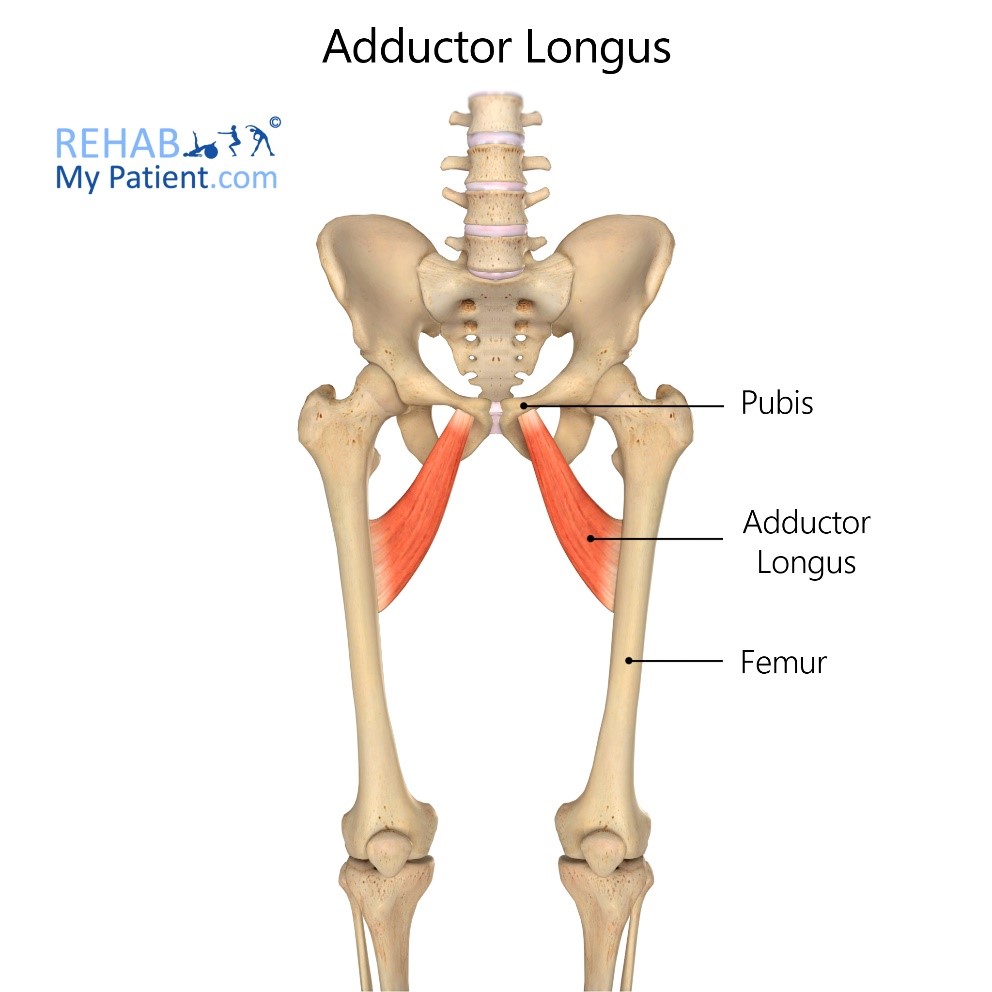Adductor Longus
Posted on 21st Jul 2020 / Published in: Hip

General information
The adductor longus is located on the inside of each thigh.
Literal meaning
A long muscle (of the thigh) that adducts (draws the leg towards the midline).
Interesting information
This group of muscles is located on the inner thigh and an injury in any one muscle can make walking difficult and painful. There are several ways the adductor longus muscle can be injured. The most common way usually involves a sports injury or activities that put a great deal of strain on the muscle. One of the most common injuries is a groin strain or tear. This can happen playing both contact and non-contact sports like hockey, football, soccer, sprinting, skiing, cycling, horseback riding, and any sport or activity that puts repetitive pressure on the muscle or activities that require quick directional movements. The symptoms usually include sharp pain and swelling. X-rays can be useful to rule out hip fractures if the person sustained trauma to the hip - if not, an MRI scan can show tears to the adductor longus muscle.
Origin
Body of pubic inferior (pelvic bone) and medial to pubic tubercle (pubic spine).
Insertion
Middle lip of the linea aspera (on the inner thigh just below where the adductor brevis attaches to the muscle group).
Function
Adduct (movement of the legs inward towards the body), stabilise, and medially rotate the hip.
Nerve supply
Anterior division of the obturator nerve (Lumbar spine 2, 3 and 4) the obturator nerve goes from the pelvic cavity through the obturator canal where it then divides into the anterior and posterior compartments and it enters the medial sections of the thigh that it supplies.
Blood supply
Obturator artery and the femoral artery.
Relevant research
The adductor longus muscles form the middle wall of the femoral triangle, also called the Scarpa's triangle. It is the triangular space at the upper part of the thigh, restricted by the sartorius and adductor longus muscles as well as the inguinal ligament.
1995. Hollinshead, Textbook of Anatomy, 4th Ed. Harper & Row, Pub.
Adductor longus exercises

Foam roller exercise
Lay facing the floor. Place one knee to the side of your body with your knee on the ground and lower leg slightly bent. Place the foam roller on the inside of your other leg, just above the knee. Roll your body towards the foam roller to move the roll up your leg, and roll all the way to the end of your leg and repeat. Perform 10 sets of 10 repetitions, then switch legs and repeat.
Sign UP
Sign up for your free trial now!
Get started with Rehab My Patient today and revolutionize your exercise prescription process for effective rehabilitation.
Start Your 14-Day Free Trial
